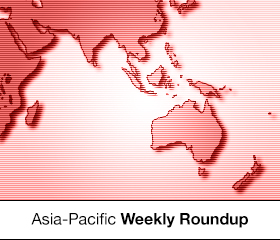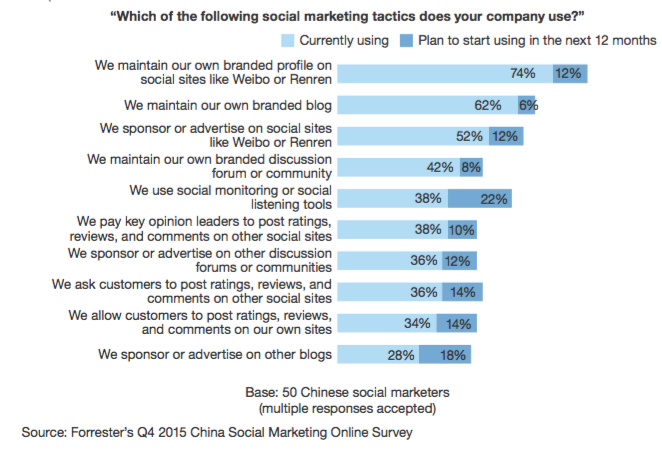Singaporeans Still Prefer Email in Brand Interaction; Social Important Among China Marketers


In this weekly segment, ExchangeWire sums up key industry updates on ad tech from around the Asia-Pacific region – and in this edition: Singaporeans still prefer email in brand interaction; Social important among China marketers; If clearly labelled, content marketing will get eyeballs; Eyeota secures USD$7m in Series A; Lenovo AU gains cost savings from taking back digital media buys; and Dentsu Aegis looks for cost savings from merged APAC & SEA teams.
Singaporeans still prefer email in brand interaction
Singapore may have one of the world's highest mobile penetration rates, but its consumers still turn to good old email to communicate with brands.
According to Epsilon's Singapore Customer Experience study, 47% of respondents in the city-state preferred email as the communication channel with travel services providers; while 45% chose this medium to interact with ecommerce companies, as well as financial services providers.
However, in dealing with high-frequency brands, such as banks, grocers, and airlines, between 25% and 27% pointed to mobile apps as their preferred channel for receiving information.
Some 47% said companies that were available when needed made for a satisfying brand experience, while 42% identified good customer service and support.
The study found that brand experience was an increasingly important component of marketing among Singapore consumers; where a bad experience could trigger negative publicity for a brand. Some 57% would relate a nasty brand experience to a family or friend, while 55% would do likewise with a positive experience.
Furthermore, having experienced an unpleasant episode with a brand, 59% of consumers would cut down on their purchase frequency with the brand, while 55% would stop buying from the brand completely.
The report also found that 65% would share their personal data with brands if they offered a reward programme from which consumers could earn and redeem rewards. Another 59% would do likewise for special deals.
Social important among China marketers
Business-to-consumer (B2C) marketers in the country are tapping social marketing extensively to engage consumers, with 74% assuming responsibilities for such initiatives.
According to a Forrester survey, that polled 50 social marketers, 51% of respondents identified social marketing as one of their top three digital marketing priorities last year.
The research firm also noted that, on average, a marketer used 4.4 of 10 social tactics, with adoption led by branded social profiles. Nearly half said they planned to tap even the least popular tactic, of sponsoring or advertising on other blogs, this year.
On average, the marketers used four social platforms, with WeChat the leading app, with 92% adoption.
Some 75% of the China social marketers planned to spend more on social marketing in 2016, with 38% looking to increase their budget by 10% to 24%, while 21% planned to up their budget by more than 25%.
Despite the importance of social marketing, respondents rated their satisfaction from using these platforms at 3.28, against a possible top score of 5. Sponsoring or advertising on other discussion forums or communities garnered the highest level of satisfaction
"Several years of practice and experimentation have sharply increased marketers' social marketing maturity. But the social media landscape and consumer behaviours are constantly changing, and marketers are struggling to keep up", Forrester said.
The research noted that China's B2C marketers would continue to face key challenges, such as the need to properly measure social marketing. Only 22% of respondents conducted brand surveys to measure the impact of their social marketing activities.
In addition, while some marketers worked with multiple agencies, including creative and media firms for various purposes, only one-third of respondents currently used agencies to help run their social marketing activities.

If clearly labelled, content marketing will get eyeballs
Most consumers (65%) are willing to read content-led marketing, if such material is clearly labelled and if it is clear which brand endorses the content, according to a report released by BBC Advertising's content marketing unit, BBC StoryWorks.
When presented to consumers who were knowledgeable about the medium, 83% would read it if it was clearly labelled, while 82% would do likewise if it was clear which brand was behind the content. Among this audience category, 80% would share it and 80% felt such marketing material served a complementary role to editorial content.
The BBC study was conducted using traditional research metrics with facial coding, provided by CrowdEmotion, to assess how brands used content-driven marketing to engage with consumers. The findings were based on 5,153 digital consumers across six markets, including Australia, Hong Kong, Singapore, and Germany.
Some 63% of respondents were happy to see the content if it reflected similar quality to the editorial content on the provider's site. Furthermore, respondents were 30% more likely to believe content-led marketing on the platforms of premium news providers would be more informative and accurate than that on non-premium news providers.
BBC noted that the findings indicated transparency and quality were important factors in the use of content-led marketing to engage the audience.
Richard Pattinson, senior vice president of content at BBC Advertising and head of BBC StoryWorks, said: "In a time when advertisers are increasing their spend on content-led marketing, it is important that they also feel confident in its effectiveness and understand the significant positive impact this kind of content has on their brand.
"We believe this study will enhance advertisers understanding and confidence in these campaigns, and in the value of high-quality content-marketing delivered in premium environments", Pattinson added.
Eyeota secures USD$7m in Series A

Eyeota CEO Kevin Tan
The Singapore-based audience data provider says it has secured USD$7m (£4.9m) in Series A funding, pushing its total funds raised so far to USD$10m (£7m).
The latest exercise was led by several investors, including Global Brain and Project A Ventures, said Eyeota, adding that the funds injection would go towards beefing up the company's headcount across its international offices as well as technology development team. It also would be used to expand the business into new markets.
The ad tech firm opened two offices in Melbourne and Tokyo last year, when it further doubled its overall headcount. It has built up 1.5 billion unique profiles from publishers in Asia-Pacific, Australia, Europe, and the Americas.
Eyeota CEO and co-founder Kevin Tan said: "Eyeota is entering a new phase of rapid growth […] the latest funds will be used to fuel our international expansion and accelerate our product offering. I am excited about what we will build with this investment and with our new shareholders' support."
Dentsu Aegis looks for cost savings from merged APAC & SEA teams
The media agency group has reportedly merged its Asia-Pacific and Southeast Asian teams to "eliminate duplicate costs".
The move resulted in the departure of some key staff members, including regional chief financial officer Theo Lau, and regional director of marketing and communications Thijs Plug, reported Mumbrella, citing an internal memo emailed to Dentsu Aegis Network staff.
It further reported that the group announced, in January 2014, the merger of Aegis Media and Dentsu Network, to form what would be the current entity, and integrated its finance, legal, IT, HR, and communication teams in Asia-Pacific and Southeast Asia to cut costs.
In the email memo, Dentsu Aegis Network Asia-Pacific CEO Nick Waters said merging some of the two regions' functions would provide for a more efficient working structure. "It is the responsibility of management to run the business as efficiently as possible and eliminate duplicate costs in order to invest in productive areas of the business", penned Waters.
Lenovo APAC looks to replicate AU savings from running media buys in-house
The PC-maker is in the process of taking back its media buying activities across Asia-Pacific, following a successful pilot in Australia that yielded cost savings of 20% to 30%.
Lenovo will be moving the buying of digital, OOH, and TV media from its former agency to an in-house team in Asia-Pacific, as part of efforts to replicate the gains the company achieved from a similar exercise in Australia.
It had tested different ways of buying digital inventory and OOH over the past nine months; removing its former media agency's involvement from much of such activities, AdNews reported
Scheduled to go live from April, the move would see Lenovo's Asia-Pacific team tapping TubeMogul's platform to acquire TV inventory, as well as tools from other ad tech vendors, including Google's DoubleClick manager, and Adobe AudienceManager.
Lenovo also would be looking to monetise its own first-party data; the funds from which would support its marketing efforts. It added that having an in-house media-buying team provided greater control of data, removed media wastage, and offered cleaner datasets since it no longer needed to compare agency reports against website metrics. Other benefits included having a centralised media buying model and better understanding of attribution modelling.
AdvertiserAgencyAPACAustraliaBrandingChinaDataMeasurementMedia SpendMobileNativeSingaporeSocial MediaTargeting








Follow ExchangeWire